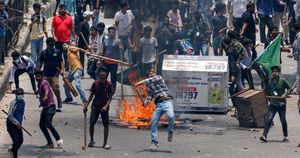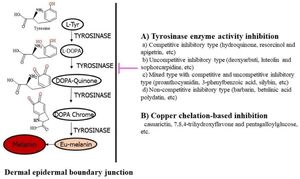The classic match between Pelotas and Brasil de Pelotas, affectionately known as Bra-Pel, returned with great anticipation on February 8, 2025, after 1,405 days without such an encounter. The match, held at Boca do Lobo, concluded with neither team managing to score, ending the game at 0-0. Both teams, now tied with six points, faced pivotal moments as they navigated their standings within the Campeonato Gaúcho.
Pelotas arrived at this clash cautiously optimistic, having found themselves situated at third place in Group B. On the other side, Brasil de Pelotas was hoping to climb to second place within Group C, reflecting the tightly contested nature of the league. The absence of definitive outcomes for both sides kept the atmosphere charged, and with the teams closely matched, every move on the pitch held substantial weight.
Prior to the game, the atmosphere was electric, with anticipation building among both fans and players. The last time spectators united for this fierce rivalry was back in March 2019. Since then, these encounters were shadowed by the pandemic's effects, with two matches played behind closed doors. This game marked the return to mixed seating arrangements, where fans from both sides could share the stands – a move aimed at fostering goodwill, albeit with underlying tensions.
Fans purchased 200 tickets priced at R$80 each for the mixed seating area, allowing two attendees per purchase. The infrastructure for fan safety was also bolstered, with the Brigada Militar planning to escort supporters from designated meeting spots to the stadium.
Lucas Canez and Jéssica Gebhardt, representing both sides of the rivalry as fans, exemplified the deep-seated passion the match inspired. While Canez, supporting Pelotas, expressed nerves leading up to the game, Jéssica, rooting for Brasil, echoed similar sentiments. They both devised strategies to navigate potential conflicts post-match, agreeing to avoid any football-related discussions until the following day, emphasizing the fine line between passion and conflict.
The game itself was marked by dynamic exchanges and strategic plays. Venicio from Pelotas came close to scoring early, and Brasil de Pelotas had its turn with Higor's well-placed shot thwarted by Pelotas’ keeper, Jorge. Despite the chances, neither team could convert their opportunities, resulting in a fair but frustrating stalemate.
This encounter not only served as a significant event for local football culture but also had broader ramifications on the teams' standings moving forward. Following this match, Pelotas was set to face Grêmio, as Brasil prepared for Ypiranga. Both teams knew the stakes; every point was invaluable heading toward the latter stages of the tournament.
The romanticism of rivalry brought out by the Bra-Pel provides more than just points on the board; it speaks to shared histories, collective hopes, and the spirit of competition deeply woven through the fabric of Gaúcho football culture. Despite the absence of goals, the event thrived with excitement, and the community engagement surrounding the match underscored its deep-rooted significance.
Next week, as teams regroup, they will reflect not only on their strategies and performance but on the unyielding passion football ignites among its supporters. The rivalry will continue as Pelotas and Brasil de Pelotas gear up for their next fixtures with plans to capture points and perhaps redefine their paths within the Campeonato Gaúcho.
The enduring Bra-Pel classic, now embarking on another chapter, proves to be much more than just numbers on the scoreboard—it embodies the very essence of sportsmanship and community spirit.



